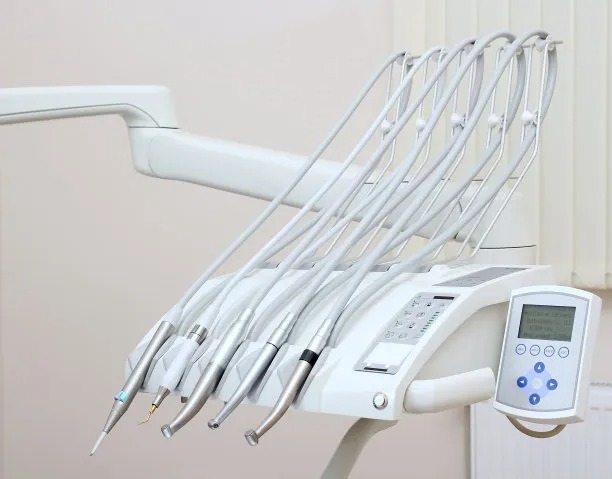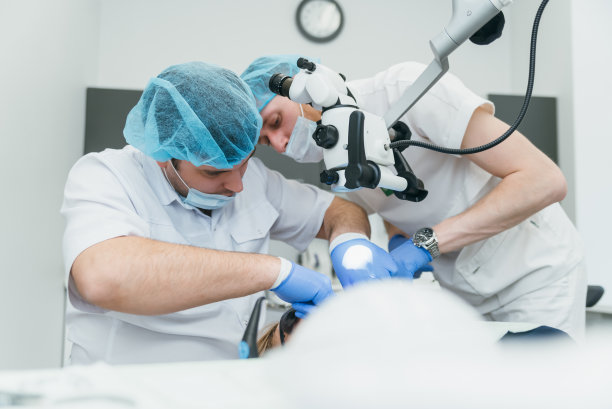Summary: Extracting a tooth is not just a dental procedure but an emotional journey that significantly influences both dental health and personal wellbeing. This article delves into the complex emotions surrounding tooth extraction, covering the initial anxiety before the procedure, feelings during recovery, the long-term impact on dental health, and the emotional release that can come post-extraction. Each of these aspects shapes ones experience differently, leading to various physical and emotional outcomes. As individuals navigate this journey, it is essential to recognize the interplay between dental health and personal wellbeing, embracing the path to recovery and self-care.
1. Anxiety Before Tooth Extraction

The thought of extracting a tooth can evoke considerable anxiety in many individuals. This nervousness often stems from fears about the pain associated with the procedure, as well as concerns regarding the dental environment itself. Many patients imagine the sights, sounds, and sensations of the dental office, which can lead to anticipatory anxiety that affects their overall mood and mental state.
Patients often grapple with various worst-case scenarios, including complications post-extraction or the discovery of additional dental issues. This fear can lead to avoidance behaviors, where patients delay necessary dental care, ultimately jeopardizing their dental health. These emotions highlight the need for effective communication between dental professionals and patients to help alleviate anxiety.
Moreover, understanding common fears and sharing coping strategies can contribute to easing the emotional burden. Techniques such as deep breathing, mindfulness, and even sedation options can provide a sense of control and support patients as they prepare for the procedure.
2. Emotional Responses After Extraction
Once the tooth has been extracted, a range of emotional responses can occur during the recovery process. Initially, patients may feel relief and liberation from pain, particularly if the tooth was problematic. This emotional release can be empowering, fueling a sense of achievement in overcoming the fear of the procedure itself.
However, on the flip side, many individuals also experience feelings of sadness or loss, especially if the tooth was a significant part of their identity, such as a prominent front tooth. This emotional duality can lead to feelings of ambivalence, making the recovery process more emotionally complex than anticipated.
Additionally, the physical discomfort associated with recovery, such as swelling and difficulty eating, can amplify negative emotions. Monitoring emotional responses during this healing phase is crucial, as emotional well-being can directly influence physical recovery. Practicing self-care strategies, such as gentle exercise and engaging in relaxing activities, can help manage these feelings.
3. Long-Term Impact on Dental Health
The extraction of a tooth carries long-term implications for dental health. While the immediate concern might be addressing pain or decay, the absence of a tooth can lead to significant structural changes in the mouth. Over time, neighboring teeth may shift into the empty space, creating alignment issues that can further complicate the dental landscape.
Moreover, missing teeth can affect chewing efficiency and speaking abilities, which may lead to emotional ramifications such as decreased confidence or social withdrawal. Considering these long-term impacts emphasizes the importance of discussing replacement options, such as implants or bridges, with dental professionals post-extraction.
Implementing preventive measures and following up with regular dental check-ups can help mitigate these issues. Patients must maintain open communication with their dentists to ensure efficient monitoring of their dental health and address any emerging concerns promptly.
4. The Path to Emotional Recovery
Beyond the immediate physical healing, the emotional journey following a tooth extraction often leads to a newfound sense of strength and resilience. As patients move through recovery, many discover the transformative power of self-care and reflection, paving the way for improved emotional health.
This journey can also foster better dental habits and mindfulness surrounding oral hygiene. Recognizing the connections between emotional wellbeing and dental health encourages individuals to take a proactive stance in their oral care, reducing fear and enhancing self-efficacy.
Involvement in support networks, whether virtual or in-person, can also aid in navigating this journey. Sharing stories and experiences with others can encourage individuals to express their feelings, leading to reduced stigma and increased emotional support during recovery.
Summary:
The emotional journey of tooth extraction encompasses a wide array of complex feelings, from anxiety and relief to sadness and empowerment. Understanding and navigating these emotions can significantly impact both dental health and personal wellbeing.
Ultimately, acknowledging the profound interplay between these elements fosters a holistic approach to dental care and personal growth. Embracing the journey can lead to not only improved dental health but also greater emotional resilience.
This article is compiled by Vickong Dental and the content is for reference only.
Vickong Dental
Vickong Dental is a large medical group established in Hong Kong in 2008 by professors from well-known medical universities in Guangdong and Hong Kong, as well as medical doctors from key national '985' universities (including Master's supervisors and senior professors). The chain of branches brings together expert dentists with PhDs and Master's degrees from Hong Kong and Mainland China, committed to providing high-quality dental treatment.
"Vickong Dental Practices the University Motto of 'Healing and Serving Society,' with a Stable Operation for Sixteen Years. It Has Been honored with Hong Kong Enterprise Leaders's Choice,' and is a Global Trusted Implant Center for the Nobel Implant System. Recommended by Hong Kong Metro Broadcast and Guangdong Television, it Serves Customers from Over Thirty Countries and Regions, Gaining the Trust and Favor of Citizens from the Guangdong-Hong Kong-Macau Greater Bay Area and Surrounding Cities.

Thousands of customers' unanimous praise
The most recognized and highly recommended dental service by customers in the Guangdong-Hong Kong-Macau Greater Bay Area
We Ensure You Receive Detailed Care and Attention Here
Hong Kong standards, Shenzhen prices, Your Trusted English-speaking dentists

Vickong Dental Medical-Grade Instrument Disinfection Process
Vickong Dental Medical-Grade Instrument Disinfection Process

Vickong Dental Chain: A Warm and Comfortable Environment for Treatment






Appointment Hours

Q&A
Why choose Vickong Dental?
Vickong Dental practices the university motto 「Medicine to Benefit Society」, with each branch bringing together highly qualified dentists with doctoral and master’s degrees from Hong Kong and the Mainland, and has maintained seventeen years of steady operation。Recipient of 「2024 Hong Kong Enterprise Leaders Brand」, 「2025 Hong Kong Enterprise Leaders Brand」, a Nobel Biocare Global Trusted Implant Center, and a brand recommended by Metro Radio Hong Kong and Guangdong TV。
To date, we have served customers from more than thirty countries and regions,earning exceptionally high word-of-mouth recognition and trusted recommendations from residents across the Guangdong-Hong Kong-Macao Greater Bay Area and surrounding cities
We have eight major branches in Zhuhai、Shenzhen,and a consultation and service assurance center in Hong Kong,so you can book a free consultation at any time for any questions,which is very reassuring.
If I do not accept the quotation after the CT scan, will I be charged??
No! As long as the actual treatment has not started, you will not be charged any fees.
Will there be any additional charges during the treatment process?
No, there won’t be any additional charges. Before treatment begins, we will clearly explain the treatment plan and its corresponding fees. Only after the patient agrees and signs the consent form will we proceed with the dental service.
Can I pay in Hong Kong dollars?
Yes. Vickong Dental accepts payment in Hong Kong dollars. The amount will be converted based on the exchange rate of the day, and the applicable rate will be clearly communicated to you in advance.
Can I reschedule my appointment at any time?
Yes. Please contact us via **WeChat** or **WhatsApp** as early as possible, providing your original appointment time and details, along with your preferred new date and time slot for rescheduling.













